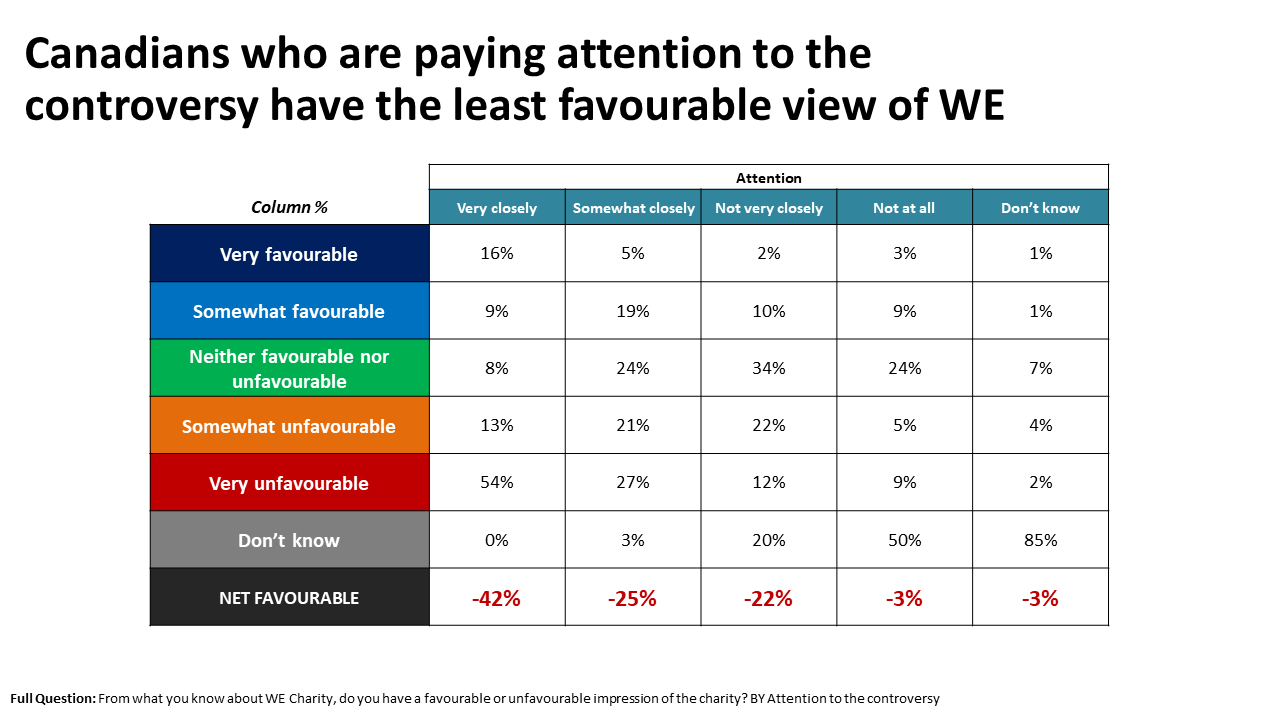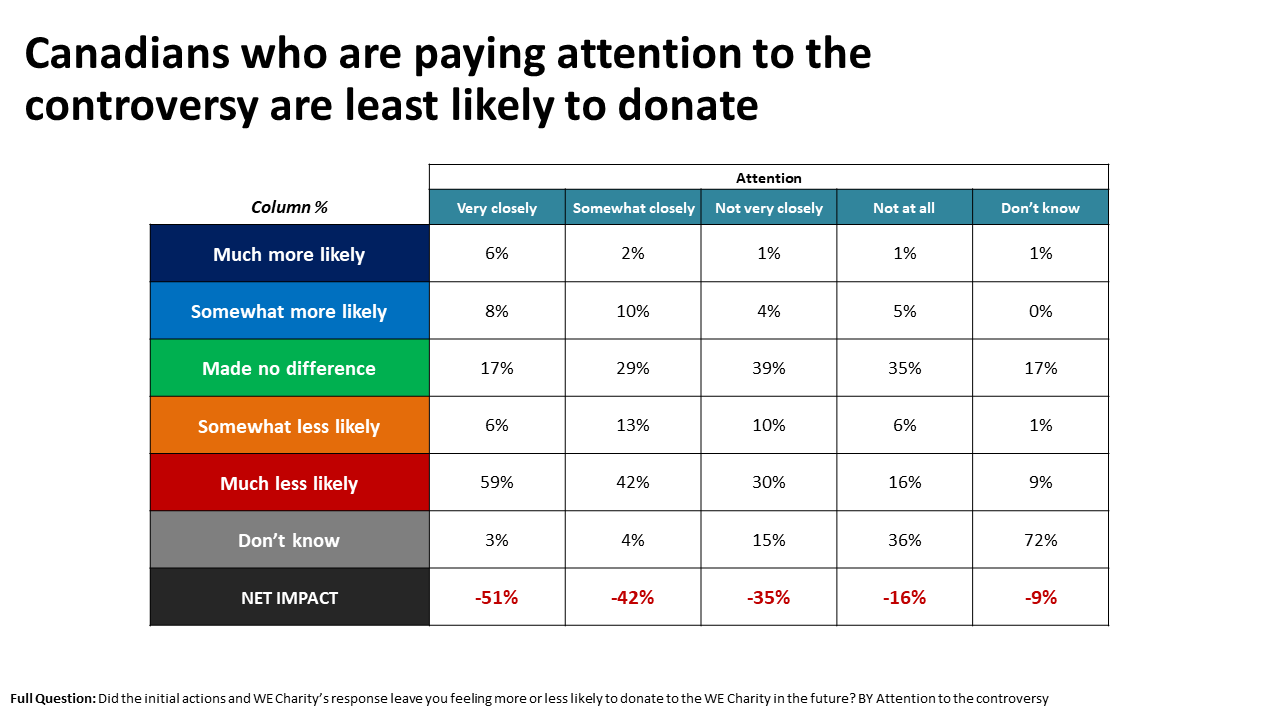
Looking at the WE controversy from the WE Charity’s perspective, a recent INNOVATIVE poll finds significant damage both to its reputation and its funding potential. Today, INNOVATIVE is releasing new results from an online poll of 1934 Canadian citizens conducted August 6th to 18th showing that the WE Charity’s involvement in the controversy hurt its brand and the likelihood of Canadians donating to it, and that that impact was particularly strong among core constituencies for the charity.
Even before asking about the controversy, the negative impact was clear. The survey asked respondents about WE Charity prior to asking any questions about the controversy. Respondents had a strongly negative impression of WE with a net score of -22% (this means 22% more people had an unfavourable impression than a favourable impression). Even those who say they know the organization best have on net a negative impression (-17%), only directionally better than WE’s overall rating.
To understand how the controversy impacted WE’s brand, we can compare those who paid the most attention to the controversy to those who were least aware. The results show that people who paid the most attention to the controversy have a worse impression of WE Charity than those who didn’t.

Unsurprisingly, the initial reaction to the controversy was negative. Almost half had a negative impression of the controversy.
Of more concern is Canadian’s view of WE’s response to the controversy. Four-in-ten (40%) disapprove of the way WE responded to the issue. Just 16% approve.
The critical issue is that Canadians don’t believe this is a one-off problem. When asked if this is a one-time occurrence or a sign of a deeper problem with the charity, the plurality (46%) say it is a sign of a deeper picture. Looking only among people who say they know the most about the organization itself, an even larger share (65%) say that this is a sign of a deeper problem with the organization.
This has a clear impact on the bottom line for WE Charity. Nearly half (44%) of Canadians say that this controversy has left them less likely to donate to the WE Charity. This impact is even more negative among those who are paying closer attention to the controversy – more than half (59%) of those who say they are paying very close attention also say they are much less likely to donate to WE Charity.

Focusing specifically on the group who say they give to international aid charities – the group most likely to donate to WE in the first place – shows a big fundraising problem. On reputation, WE is actually directionally better off among this group both on the question of whether this issue is only episodic or if it is thematic for the charity, and on the question of how they handled the incident, although in both cases the impact is still strongly negative. More worrying for WE however is that international aid donors are worse when it comes to intention to donate to WE in the future. A majority of this group (53%) say they are less likely to donate to WE now, including 36% who are much less likely.
There might be a small silver lining for WE – young Canadians seem to have been impacted less by the controversy. Younger respondents are most likely to say that it is a one-off occurrence, rather than a deeper problem and are least likely to say that it left them less likely to donate to WE.
Overall, the WE brand received a severe blow both from the initial controversy and from perceptions of the organization’s response to the issue. The result is a significant hit to the charities ability to raise funds not just generally, but among the people who know them best and who are most likely to give to them. Given this damage, it comes as no surprise that WE has made the decision to cease operations in Canada.
For detailed results, download INNOVATIVE’s full report here.

































